Best Database Software For Mac
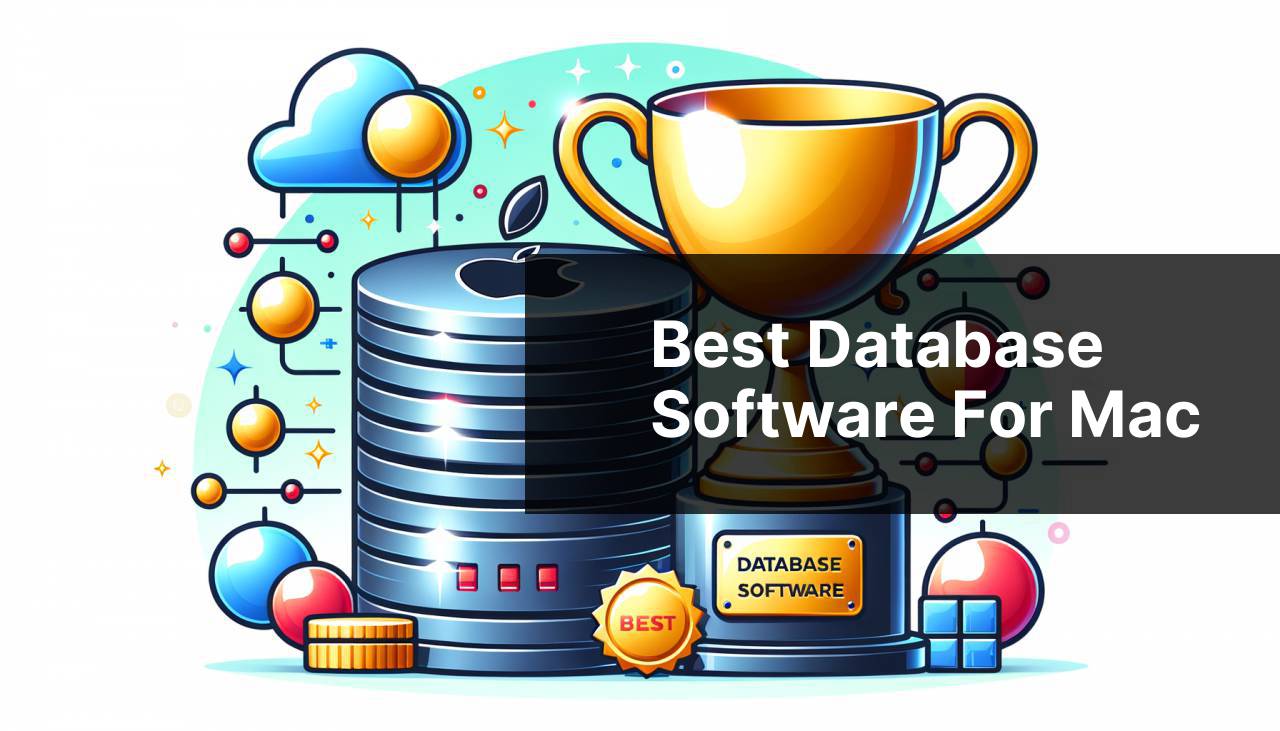
As a dedicated Mac user, I’ve had my fair share of experiences with various database software over the years. If you’re on the lookout for the best database software for Mac, you’ve come to the right place. Choosing the right database can be a crucial decision for your projects or business, and with the plethora of options available, it can be overwhelming to find the one that fits your specific needs. In this post, I will share my insights and reviews on top database software that I’ve personally tried and tested on my Mac.
Clarisse by FileMaker

The Clarisse by FileMaker is a dynamic and versatile database software that has consistently been a top choice for Mac users. With its customizable solutions and drag-and-drop interface, you can tailor-make databases for any scenario, be it for business or personal projects.
Pros
- Robust cross-platform capabilities
- Wide range of customization options
Cons
- Steep learning curve for beginners
- Relatively high cost for small scale users
MySQL
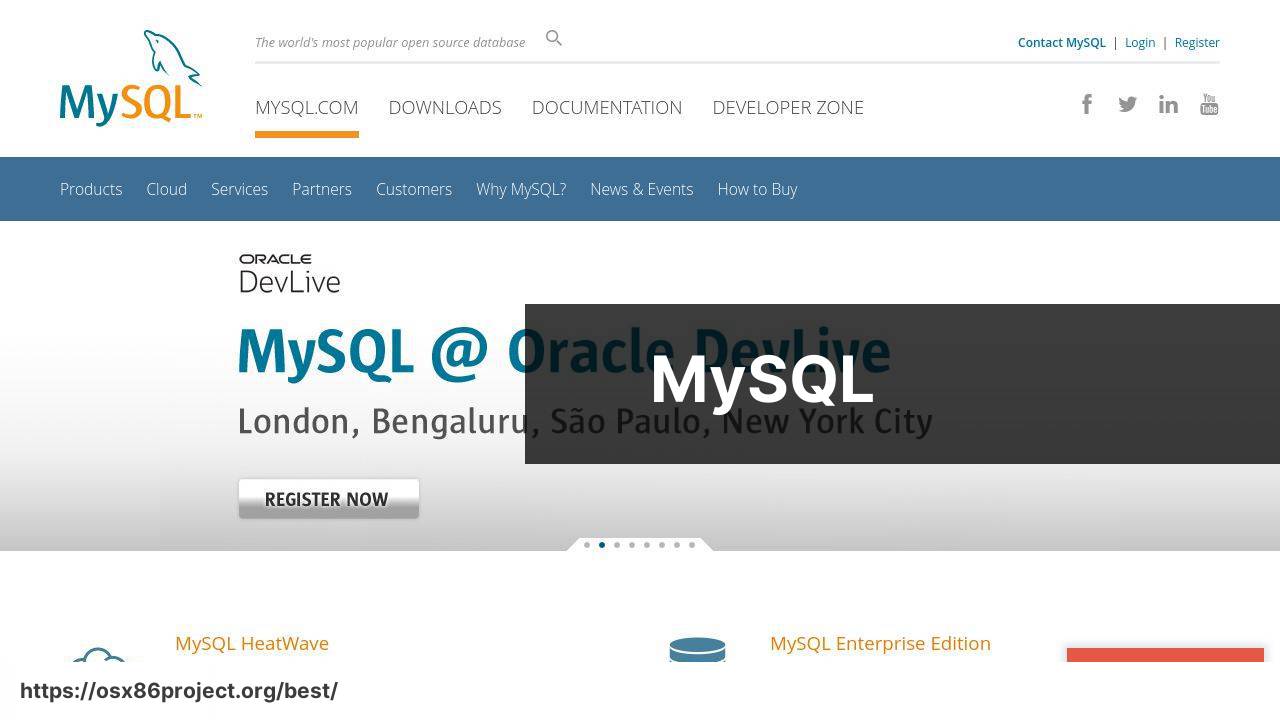
MySQL is an open-source relational database management system that’s known for its reliability and performance. It’s popular among web developers and it perfectly fits into the Mac environment, making it a great choice for developing web applications or back-end databases.
Pros
- Free and open-source with a large community
- High performance and scalability
Cons
- Can be complex for beginners
- Advanced features may require a paid subscription
PostgreSQL
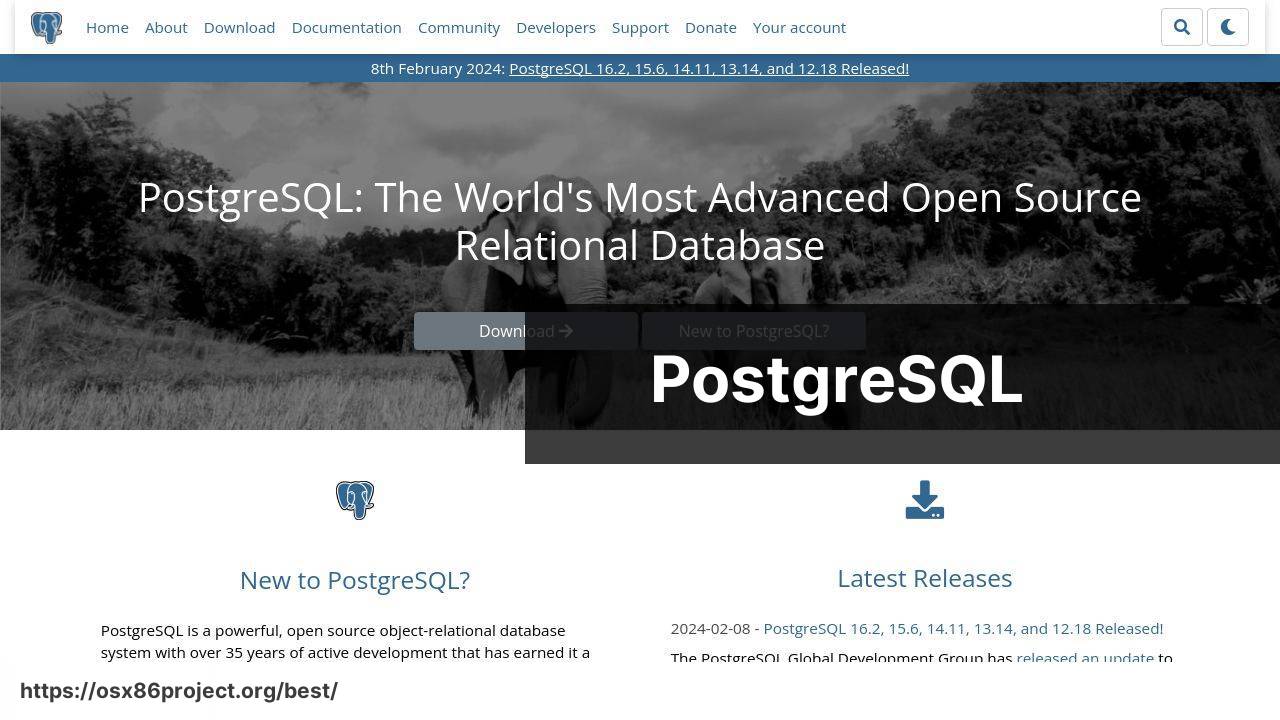
PostgreSQL is a powerful open-source object-relational database system with a reputation for robustness and performance. Unlike others, it supports advanced data types and complies with the SQL standard more closely. It’s excellent for complex queries, making it a favorite among academic and research communities.
Pros
- Supports advanced and custom data types
- Highly compliant with SQL standards
Cons
- Can have a steeper learning curve
- Less mainstream support than MySQL
MongoDB
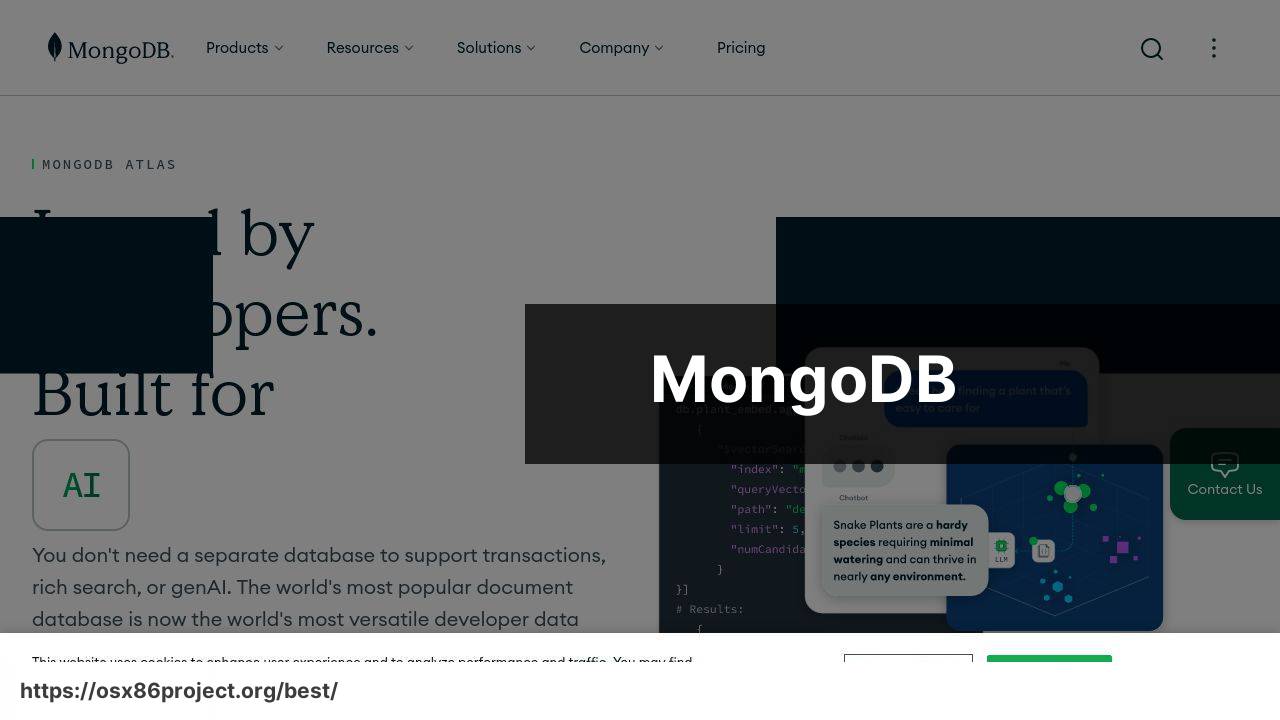
MongoDB is a NoSQL database that offers high scalability and flexibility with its document-oriented approach. It’s a hit amongst developers who work with large volumes of data that do not fit well into traditional table-based structures. Its JSON-like documents create a more natural data representation.
Pros
- Flexible and schema-less data model
- Great for handling big data and real-time analytics
Cons
- Transaction support not as strong as in SQL databases
- Consistency can be a challenge in distributed environments
SQLite
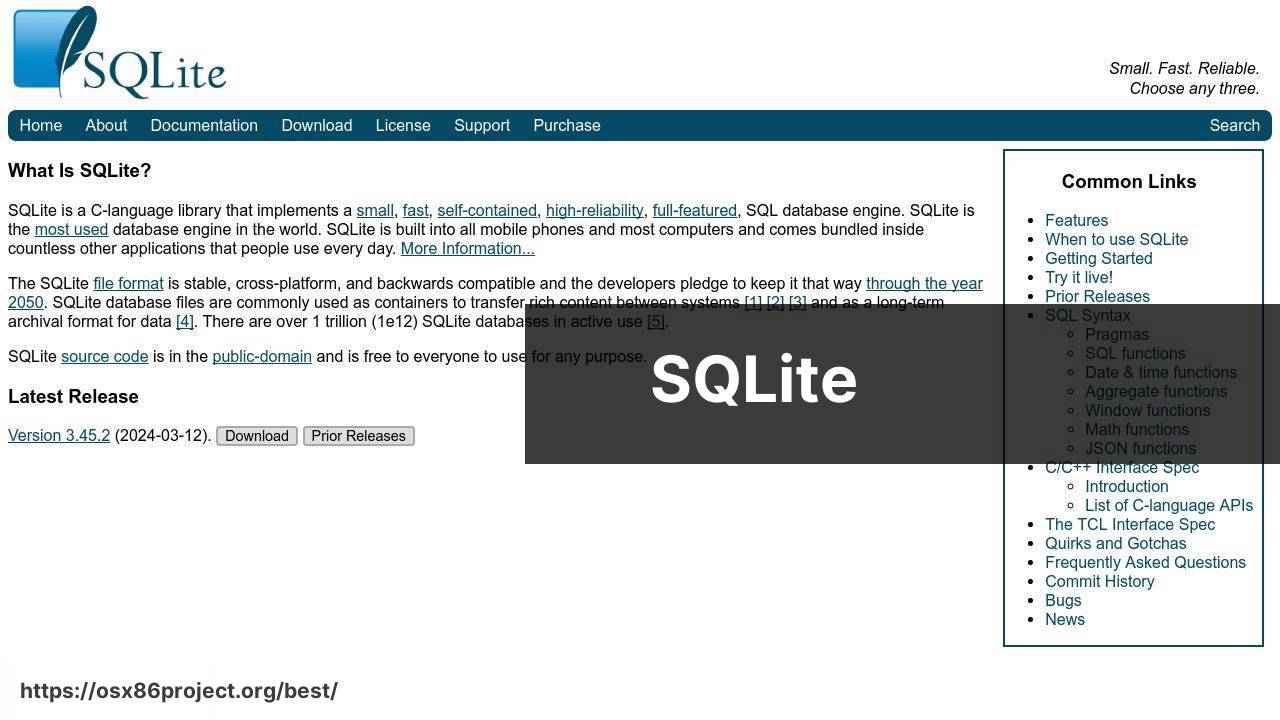
SQLite is a C-language library that provides a lightweight disk-based database. It doesn’t require a separate server process, making it perfect for embedded systems or applications that need a simple database without the overhead. On Mac, it’s often used for small to medium-sized applications.
Pros
- Lightweight and self-contained
- Wide adoption and well-documented
Cons
- Limited concurrency and lower performance under heavy write-load
- Not suited for high transaction rate or large-scale applications
Microsoft SQL Server
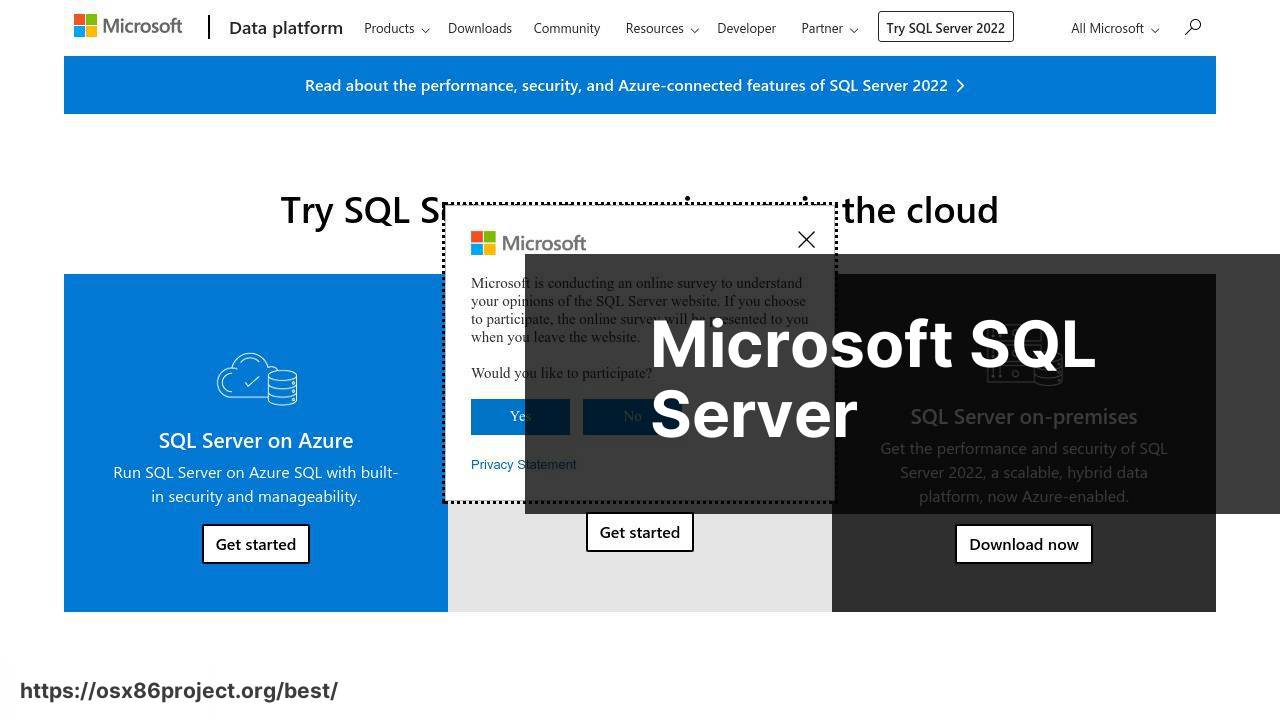
While traditionally a Windows-centric solution, Microsoft SQL Server has made significant moves to embrace the Mac environment. It’s a comprehensive, enterprise-level database system that offers deep data analysis and robust security features.
Pros
- Advanced data analysis tools
- Strong security features
Cons
- Requires a virtual machine or Docker for macOS
- High total cost of ownership for the full suite of features
Conclusion:
To dive deeper into the world of database software, there’s no shortage of high-quality resources. You can enrich your knowledge by checking out the comprehensive documentation offered on each of the software’s official websites. If you’re keen on enhancing your data management skills, consider visiting Coursera or Udemy for online courses taught by industry professionals.
When considering database security, resources from OWASP can be quite enlightening. To keep up with the latest trends and updates in the world of database software, websites like DBA Stack Exchange and Hacker News are worth exploring.
FAQ
What are some popular database software options available for Mac?
Popular database software for Mac includes FileMaker Pro, Microsoft Access via virtualization, SQLite, and open-source options like PostgreSQL and MySQL.
Is Microsoft Access directly available for Mac users?
No, Microsoft Access is not available for Mac OS natively. However, Mac users can run it on a Windows partition or using virtualization software like Parallels Desktop.
Can Mac users utilize open-source database software?
Yes, Mac users can utilize open-source database software such as PostgreSQL and MySQL. These databases are widely supported and offer robust functionality.
How does FileMaker Pro stand out as a database solution for Mac?
FileMaker Pro offers a user-friendly interface, cross-platform compatibility, and extensive customization options, making it a strong choice for Mac users. (Claris FileMaker)
What is a good lightweight database option for simple projects on Mac?
For simple projects, SQLite is a good lightweight option that requires minimal setup and can be embedded into applications.
Does Apple offer a native database application for Mac users?
Apple does not offer a native database application specifically for databases, but Mac users can use software like FileMaker Pro or third-party options.
Which database software is best for Mac users looking for extensive SQL support?
For extensive SQL support, Mac users might prefer PostgreSQL, known for its standards compliance and advanced features. (PostgreSQL)
Are there any cloud-based database solutions suitable for Mac?
Yes, cloud-based solutions like Amazon RDS or Google Cloud SQL work well with Mac and provide scalability and easy management.
Can Mac users benefit from NoSQL databases?
Yes, Mac users can benefit from NoSQL databases like MongoDB, which offer scalability and flexibility for handling unstructured data.
What is the best database software for Mac users with no prior database experience?
FileMaker Pro is highly recommended for users with no prior database experience due to its intuitive design and easy-to-use templates.
 Best MacOS Apps / Software
Best MacOS Apps / Software
